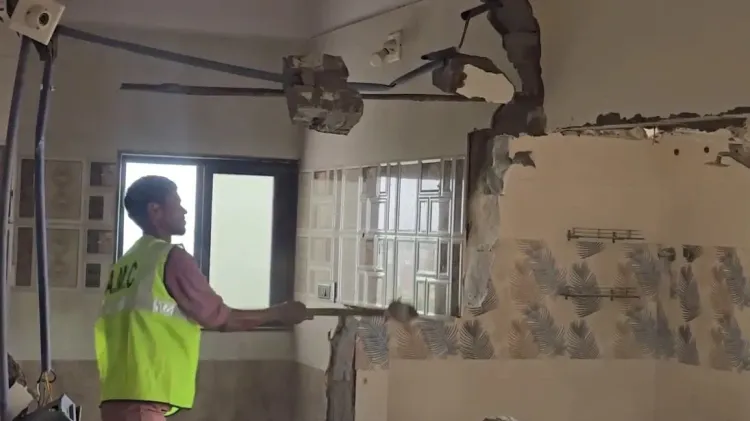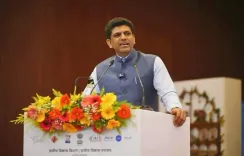What Actions are Being Taken Against the Rs 100 Crore Waqf Land Scam Involving Salim Jumma Khan?

Synopsis
Key Takeaways
- Ahmedabad Municipal Corporation is actively demolishing illegal constructions.
- The case involves a Rs 100-crore fraud linked to Waqf properties.
- Salim Jumma Khan has been arrested for his role in the scam.
- The need for transparency in waqf property administration is critical.
- Recurring allegations of mismanagement highlight systemic issues.
Ahmedabad, July 14 (NationPress) In a significant move, the Ahmedabad Municipal Corporation (AMC) has initiated demolition actions against a structure built unlawfully, associated with Salim Jumma Khan. Khan is a key figure in a Rs 100-crore fraud case involving the Waqf Board and municipal property in the Jamalpur locality of the city.
On April 20, Khan along with four accomplices was apprehended by the Ahmedabad Police regarding the scam.
In May, the Enforcement Directorate also acknowledged the case and commenced its investigation.
The origins of this case trace back to 2009, when Khan reportedly encroached upon land that previously served as a school, which was demolished during the 2001 Gujarat earthquake.
Over the years, he constructed both residential and commercial properties on this site, falsely representing himself as a trustee and collecting rents for more than twenty years.
During the COVID-19 pandemic (2019–2020), the AMC had issued a notice addressing the illegal construction.
Despite this notice, Khan allegedly sold all 85 units in the building without proper legal authorization, claiming inadequate police protection as an excuse for his non-compliance.
On Monday, the AMC commenced the demolition of the structure. As bulldozers had not yet been deployed, workers utilized sledgehammers to start dismantling the building. Additionally, power and water supplies to the nine-storey illegal edifice, which spans 2,734 square meters, have been severed. Full-scale demolition will proceed once the premises are entirely vacated.
The Waqf Board in Gujarat is a legal entity responsible for the administration and protection of properties endowed for religious or charitable reasons under Islamic law. Gujarat boasts thousands of registered waqf properties—ranging from mosques, dargahs, cemeteries, and madrasas to commercial and residential spaces—many of which are located in prime urban areas.
Nonetheless, the board has consistently faced allegations of mismanagement, encroachments, and illicit transfers, frequently involving influential local trustees and political meddling. Despite periodic audits and state-level oversight, enforcement has remained insufficient, and numerous waqf lands have been embroiled in disputes or scams. This situation underscores the pressing need for enhanced transparency, digitization, and accountability in the management of waqf properties across the state.





